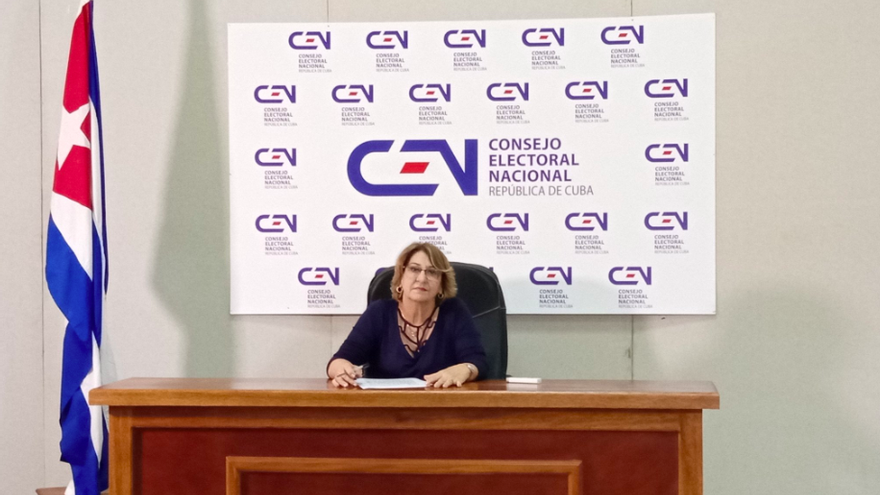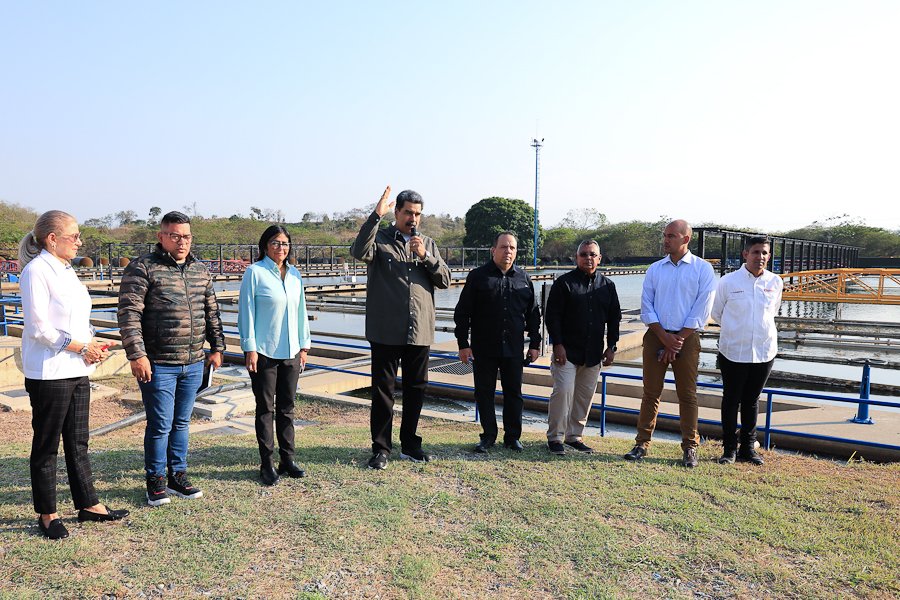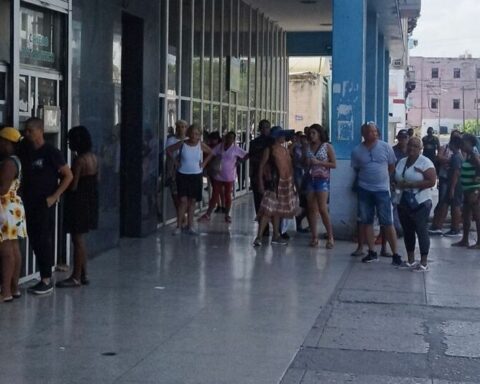The president of the National Electoral Council (CEN), Alina Balseiro, gave a press conference to offer the final results of the elections for the National Assembly of Popular Power (ANPP) of Cuba held last Sunday, March 26.
In it, he reported that the electoral roll changed during voting day, something common in Cuba, increasing by about 9,000 voters due to the “compatibility” of the voter lists.
He pointed out that according to official data, participation rose to 75.89% (6,167,605), and that “all deputies were elected with more than 61% of the valid votes cast as required by electoral law, with free voting, equal, direct and secret”.
He reiterated on several occasions the transparency of the electoral process, and even assured that “it is not the case for us, but they can audit us, they can review us.”
Electoral Transparency takes Balseiro at his word and officially requests a comprehensive audit in the different phases of the electoral process.
Despite the statements of the head of the CEN, the Cuban elections are essentially autocratic (by clauses established in the Constitution –single party regime and irrevocability of socialism–) and technically opaque.
What are the criteria used by the National Candidacy Commission for the selection of 470 candidates from a universe of more than 19,000 that had been initially announced?
In other words, by their nature they are non-competitive elections, which only serve to seek to legitimize the candidates previously selected by the mass organizations subordinated to the Communist Party of Cuba (PCC), and procedurally they are inscrutable, because there are no cross-checks, independent audits nor national and/or international electoral observation.
In such a way that Electoral Transparency proposes an audit that can respond to issues such as:
1. What are the criteria used by the National Candidacy Commission for the selection of 470 candidates from a universe of more than 19,000 that had been initially announced?
2. What are the selection criteria for election officials?
3. What are the criteria for the selection of polling station authorities, what kind of training did they receive and how were they evaluated?
4. What is the criteria for the selection of voting centers? How do you guarantee accessibility?
5. What are the security measures in the work of deploying electoral material? Do the tickets have any identification? How do you make sure they are not apocryphal? What body is responsible for rendering accounts of the deployment operation?
6. How is the electoral roll drawn up and how is it refined?
7. How do you ensure that a person does not vote in two or more polling places? What is the procedure to cross the voting lists? How is consolidation done?
8. What are the protocols for the transfer of the ballot box once the election is over? How is the chain of custody of the material guaranteed in case a recount of a table is necessary?
9. What are the grounds for reopening a ballot box?
10. What resources can the citizens who observe the vote count file if they do not agree with what is reflected in the vote count record and before which instances?
11. Where are the tally sheets? Why are they not published and open to the public in digital format?
12. What is the data transmission and consolidation system? Who audits it?
Electoral Transparency requested the National Electoral Council to open itself to an independent audit after the 2022 municipal elections
These are just some of the issues that could be analyzed in a comprehensive audit that, although it would not reverse the anti-democratic nature of the election, could attest to its technical soundness.
Electoral Transparency requested the National Electoral Council to open itself to an independent audit after the 2022 municipal elections with the aim of making the aforementioned points clear before holding the elections on March 26. However, there was no opening by the electoral body.
Given that on this occasion the head of the CEN, Alina Balseiro, publicly expresses that they are open to an audit, and considering that the results have generated justified doubts as there is no relationship between the percentage of participation announced and the influx of voters in the voting centers vote, Electoral Transparency reiterates the request to audit the process. The organization’s technical team makes the technical unit available to travel to Havana and launch a comprehensive audit.
Unfortunately, the CEN website is not operational at the time of publication of this statement, so Electoral Transparency communicates the proposal via Twitter.
________________________
Collaborate with our work:
The team of 14ymedio He is committed to doing serious journalism that reflects the reality of deep Cuba. Thank you for accompanying us on this long road. We invite you to continue supporting us, but this time becoming a member of our newspaper. Together we can continue transforming journalism in Cuba.








